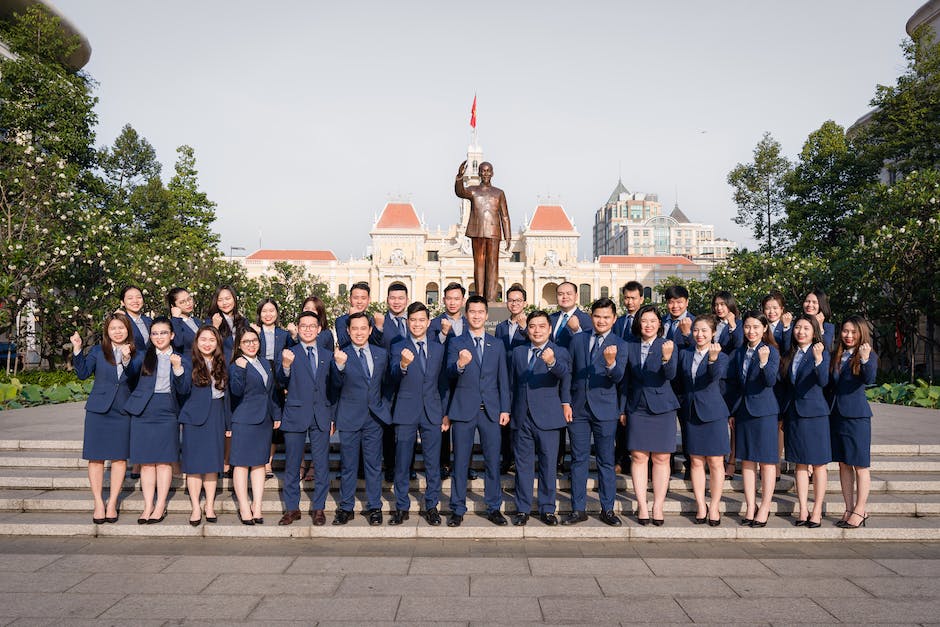Table of Contents
“Pioneering Continuity: Unveiling the Secrets of Succession at Virgin Group”
Introduction
Pioneering Continuity: Understanding Succession at Virgin Group
Succession planning is a critical aspect of any organization’s long-term sustainability and growth. It ensures a smooth transition of leadership and the preservation of the company’s core values and vision. One company that has successfully navigated this process is the Virgin Group, a multinational conglomerate founded by Sir Richard Branson. With its diverse portfolio of businesses spanning various industries, the Virgin Group has demonstrated a unique approach to succession planning, which has contributed to its continued success over the years. In this article, we will delve into the pioneering continuity of the Virgin Group and explore how it has effectively managed leadership transitions to maintain its innovative and entrepreneurial spirit.
The Importance of Succession Planning in Business Organizations

Succession planning is a critical aspect of any business organization, as it ensures the smooth transition of leadership and the continued success of the company. One company that has excelled in this area is the Virgin Group, founded by Sir Richard Branson. With a diverse portfolio of businesses ranging from airlines to music labels, the Virgin Group has managed to maintain its innovative and entrepreneurial spirit through effective succession planning.
Succession planning involves identifying and developing potential leaders within an organization to fill key positions when the current leaders retire or move on. It is a proactive approach that ensures the continuity of leadership and minimizes disruptions to the business. The importance of succession planning cannot be overstated, as it allows organizations to maintain stability, retain institutional knowledge, and foster a culture of growth and development.
At the Virgin Group, succession planning is deeply ingrained in the company’s DNA. Sir Richard Branson, the founder and face of the company, has always been a strong advocate for nurturing talent and empowering individuals to take on leadership roles. He believes that a successful business is built on the strength of its people, and that investing in their development is crucial for long-term success.
One of the key strategies employed by the Virgin Group is the identification and grooming of potential successors from within the organization. This approach allows the company to tap into the existing talent pool and leverage the knowledge and experience of its employees. By providing opportunities for growth and development, the Virgin Group ensures that its future leaders are well-prepared to take on the challenges of leading a diverse and dynamic organization.
Another important aspect of succession planning at the Virgin Group is the emphasis on diversity and inclusion. The company recognizes the value of different perspectives and experiences, and actively seeks to promote diversity in its leadership ranks. This not only ensures a more inclusive and equitable workplace but also enhances the company’s ability to adapt to changing market dynamics and customer needs.
The Virgin Group also places a strong emphasis on mentorship and coaching as part of its succession planning efforts. Experienced leaders within the organization are paired with high-potential individuals to provide guidance, support, and opportunities for growth. This mentorship program not only helps to develop future leaders but also fosters a culture of continuous learning and development throughout the organization.
In addition to internal succession planning, the Virgin Group also recognizes the importance of external talent acquisition. The company actively seeks out individuals with diverse backgrounds and skill sets to bring fresh perspectives and ideas to the organization. This approach ensures that the company remains at the forefront of innovation and is able to adapt to the ever-changing business landscape.
In conclusion, succession planning is a critical component of any business organization, and the Virgin Group serves as a shining example of how effective succession planning can drive long-term success. By investing in the development of its employees, promoting diversity and inclusion, and fostering a culture of mentorship and coaching, the Virgin Group ensures that it has a pipeline of talented leaders ready to take on the challenges of the future. Other organizations can learn from the Virgin Group’s approach and implement similar strategies to ensure their own continuity and success.
Examining the Succession Strategy at Virgin Group
Pioneering Continuity: Understanding Succession at Virgin Group
Examining the Succession Strategy at Virgin Group
Succession planning is a critical aspect of any organization’s long-term sustainability. It ensures that leadership transitions are smooth and that the company’s vision and values are upheld. One company that has successfully implemented a robust succession strategy is the Virgin Group, founded by Sir Richard Branson.
Virgin Group is a multinational conglomerate with over 400 companies operating in various industries, including travel, entertainment, telecommunications, and healthcare. With such a diverse portfolio, it is essential for the company to have a well-defined succession plan to maintain its success and innovative spirit.
One of the key elements of Virgin Group’s succession strategy is the emphasis on internal talent development. The company believes in nurturing its employees and providing them with opportunities to grow and take on leadership roles. This approach ensures that there is a pool of capable individuals ready to step into key positions when the need arises.
To facilitate internal talent development, Virgin Group has established various programs and initiatives. One such program is the Virgin Leadership Development Program, which identifies high-potential employees and provides them with specialized training and mentoring. This program not only equips individuals with the necessary skills but also instills the company’s values and culture, ensuring a seamless transition when they assume leadership roles.
Another aspect of Virgin Group’s succession strategy is the involvement of the founder, Sir Richard Branson, in the process. Despite stepping down as CEO in 2000, Branson remains actively involved in the company’s operations and decision-making. His presence provides stability and continuity, as his vision and entrepreneurial spirit continue to guide the organization.
Branson’s involvement also extends to the selection of his successor. He plays a crucial role in identifying and grooming potential candidates for leadership positions. This hands-on approach ensures that the next generation of leaders shares his passion and commitment to the Virgin brand.
In addition to internal talent development and founder involvement, Virgin Group also recognizes the importance of external perspectives. The company actively seeks out individuals with diverse backgrounds and experiences to join its leadership team. This approach brings fresh ideas and perspectives to the table, fostering innovation and adaptability.
To attract external talent, Virgin Group has established partnerships with leading universities and organizations. These partnerships provide access to a pool of talented individuals who can contribute to the company’s growth and success. By combining internal talent development with external recruitment, Virgin Group ensures a healthy balance of continuity and fresh perspectives in its leadership team.
Furthermore, Virgin Group’s succession strategy is not limited to a single individual. The company believes in a collective leadership approach, where multiple individuals share the responsibility of leading the organization. This approach not only distributes the workload but also encourages collaboration and diversity of thought.
In conclusion, Virgin Group’s succession strategy is a testament to its commitment to long-term sustainability and innovation. By focusing on internal talent development, involving the founder in the process, seeking external perspectives, and adopting a collective leadership approach, the company ensures a smooth transition of leadership and maintains its pioneering spirit. As Virgin Group continues to expand and diversify, its succession strategy will play a crucial role in shaping its future success.
Lessons Learned from Successful Succession at Virgin Group
Pioneering Continuity: Understanding Succession at Virgin Group
Lessons Learned from Successful Succession at Virgin Group
Succession planning is a critical aspect of any organization’s long-term sustainability. It ensures that there is a smooth transition of leadership and a continuation of the company’s vision and values. One company that has successfully navigated the challenges of succession is the Virgin Group, founded by Sir Richard Branson.
One of the key lessons learned from Virgin Group’s succession planning is the importance of grooming internal talent. Branson has always believed in promoting from within and giving employees the opportunity to grow and develop their skills. This approach has created a strong pool of potential successors who are already familiar with the company’s culture and values.
Another lesson learned from Virgin Group’s succession planning is the need for a clear and transparent process. Branson has always been open about his plans for succession and has actively involved the board of directors in the decision-making process. This transparency has helped to build trust and confidence among employees and stakeholders, ensuring a smooth transition when the time comes.
Additionally, Virgin Group has recognized the importance of diversity in its succession planning. Branson has actively sought out individuals from different backgrounds and experiences to join the company’s leadership team. This diversity of thought and perspective has been instrumental in driving innovation and ensuring the company’s continued success.
Furthermore, Virgin Group has embraced the concept of shared leadership. Rather than relying solely on one individual to lead the company, Branson has fostered a culture of collaboration and teamwork. This approach has allowed for a seamless transition of leadership and has ensured that the company’s vision and values remain intact.
Another lesson learned from Virgin Group’s succession planning is the importance of ongoing development and training. Branson has always encouraged his employees to continuously learn and grow, providing them with opportunities for professional development. This commitment to learning has not only helped to prepare potential successors but has also created a culture of continuous improvement within the organization.
Moreover, Virgin Group has recognized the importance of maintaining a strong company culture during the succession process. Branson has always emphasized the importance of fun, creativity, and innovation in the workplace. This unique culture has been a key factor in attracting and retaining top talent, ensuring a smooth transition of leadership.
Lastly, Virgin Group has demonstrated the importance of adaptability in succession planning. Branson has always been willing to adapt and evolve his leadership style to meet the changing needs of the company. This flexibility has allowed for a seamless transition of leadership and has ensured that the company remains competitive in a rapidly changing business landscape.
In conclusion, Virgin Group’s success in succession planning can be attributed to several key lessons learned. These include the importance of grooming internal talent, having a clear and transparent process, embracing diversity, fostering shared leadership, providing ongoing development and training, maintaining a strong company culture, and being adaptable. By applying these lessons, organizations can ensure a smooth transition of leadership and continue to thrive in an ever-changing business environment.
Exploring the Impact of Continuity on Virgin Group’s Long-Term Success
Pioneering Continuity: Understanding Succession at Virgin Group
Exploring the Impact of Continuity on Virgin Group’s Long-Term Success
Succession planning is a critical aspect of any organization’s long-term success. It ensures that there is a smooth transition of leadership and a clear path for the future. One company that has mastered the art of succession planning is the Virgin Group, founded by Sir Richard Branson.
Virgin Group is a multinational conglomerate that operates in various industries, including travel, entertainment, and telecommunications. With over 400 companies under its umbrella, Virgin Group has achieved remarkable success over the years. One of the key factors contributing to its success is the emphasis on continuity in leadership.
Continuity in leadership refers to the seamless transition of power from one leader to another. It ensures that the vision and values of the organization remain intact, even as new leaders take charge. At Virgin Group, this continuity has been a driving force behind its long-term success.
One example of successful succession planning at Virgin Group is the transition from Sir Richard Branson to Josh Bayliss as the CEO of Virgin Group. Branson, the charismatic and visionary founder of the company, stepped down as CEO in 2020 after leading the company for nearly five decades. However, his departure did not disrupt the company’s operations or its growth trajectory.
The smooth transition from Branson to Bayliss can be attributed to the meticulous succession planning at Virgin Group. Branson had been grooming Bayliss for the role for several years, ensuring that he was well-prepared to take over the reins. This allowed for a seamless transfer of leadership and ensured that the company’s values and culture remained intact.
Continuity in leadership also extends beyond the CEO position at Virgin Group. The company has a robust talent development program that identifies and nurtures future leaders within the organization. This ensures that there is a pool of qualified individuals ready to step into leadership roles when the need arises.
Moreover, Virgin Group encourages a culture of innovation and entrepreneurship, which further contributes to its long-term success. The company values individuals who are willing to take risks and think outside the box. This culture of innovation has been ingrained in the organization since its inception and has been passed down from one generation of leaders to the next.
The impact of continuity on Virgin Group’s long-term success is evident in its financial performance. Despite operating in highly competitive industries, the company has consistently delivered strong financial results. This can be attributed to the stability and consistency in leadership, which allows for effective strategic planning and execution.
In conclusion, the success of Virgin Group can be attributed, in part, to its emphasis on continuity in leadership. The company’s meticulous succession planning ensures a smooth transition of power and allows for the preservation of its vision and values. This continuity, coupled with a culture of innovation and entrepreneurship, has been instrumental in the company’s long-term success. As Virgin Group continues to expand its reach and venture into new industries, its commitment to continuity will undoubtedly remain a key driver of its continued success.
Q&A
1. What is Pioneering Continuity?
Pioneering Continuity is a concept that refers to the understanding and management of succession at the Virgin Group.
2. Why is understanding succession important at Virgin Group?
Understanding succession is important at Virgin Group to ensure a smooth transition of leadership and maintain the company’s innovative and pioneering culture.
3. How does Virgin Group approach succession planning?
Virgin Group approaches succession planning by identifying and nurturing talent within the organization, promoting internal candidates, and providing mentorship and development opportunities.
4. What are the benefits of effective succession planning at Virgin Group?
Effective succession planning at Virgin Group ensures continuity of the company’s vision, values, and entrepreneurial spirit. It also helps in maintaining stability, attracting and retaining top talent, and fostering long-term success.
Conclusion
In conclusion, understanding succession at Virgin Group is crucial for maintaining the pioneering continuity of the company. By carefully selecting and preparing successors, Virgin Group can ensure a smooth transition of leadership and preserve its innovative and entrepreneurial spirit. This approach will contribute to the long-term success and sustainability of the company.




